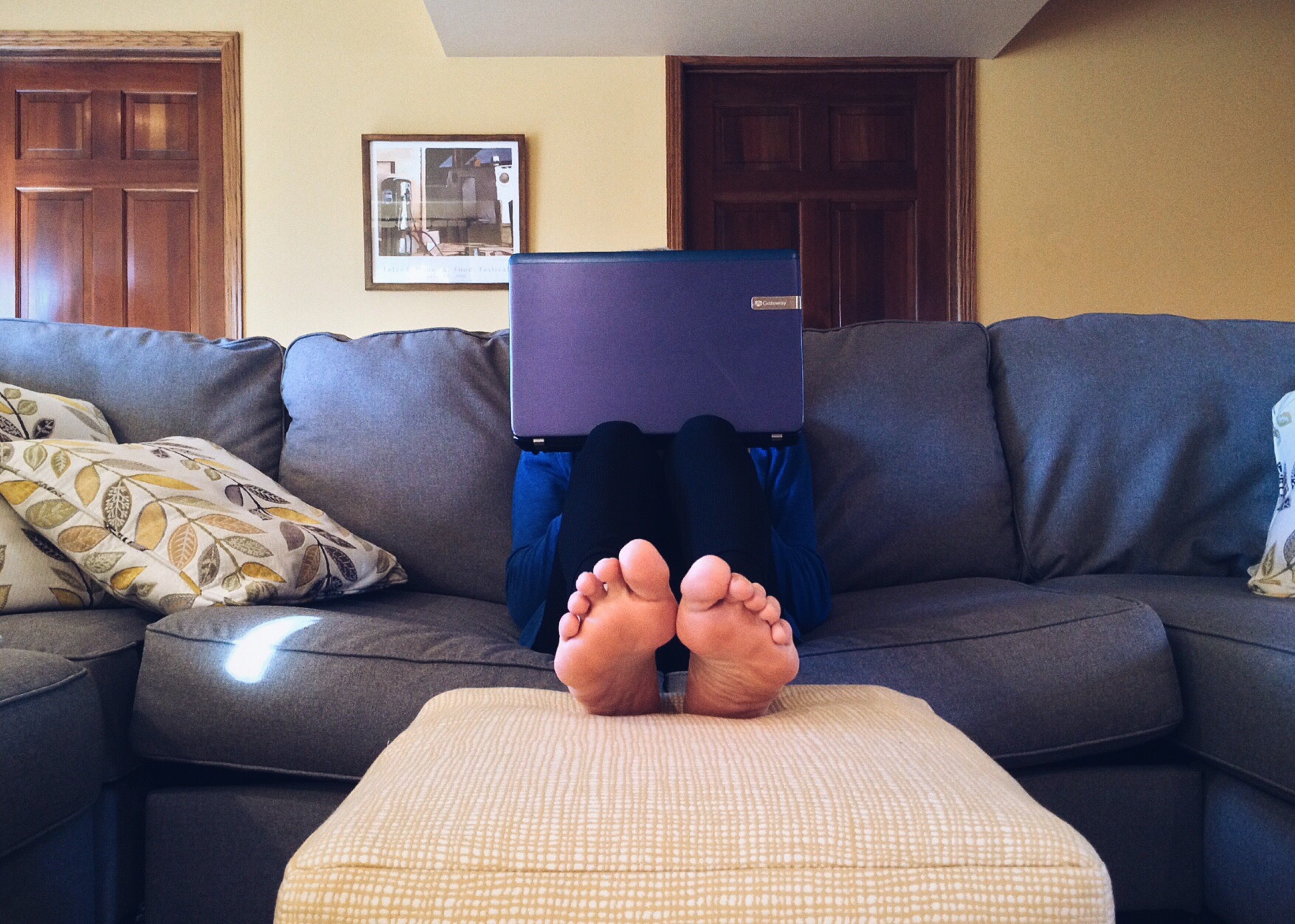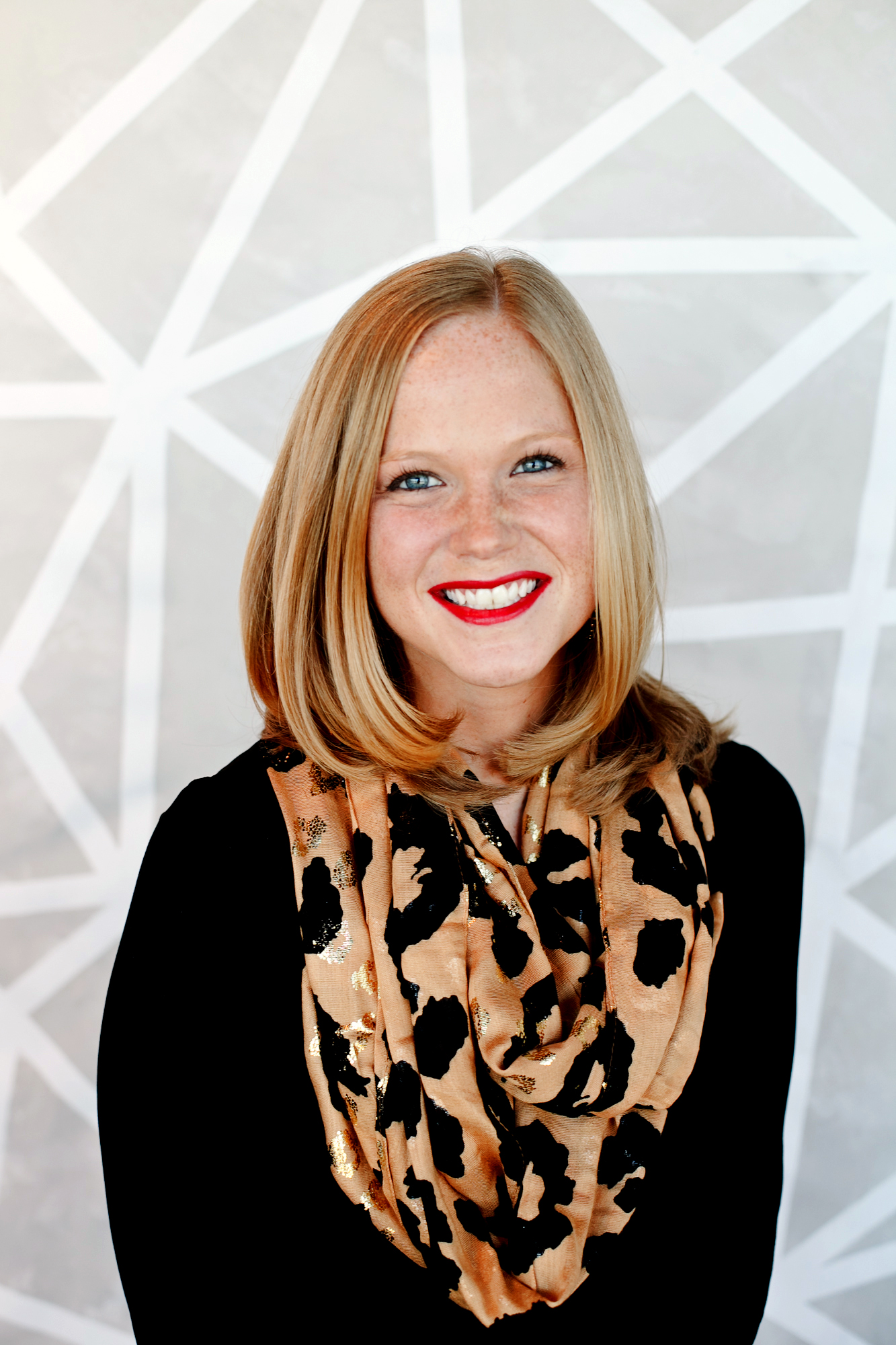Most days, I forget to eat. And no, it’s not because I am on some kind of diet or deliberately trying to lose weight. Although, since I got engaged, everyone around me does want to attribute how I look to my “Wedding Diet”. On the days I do remember, I try to optimize the time I spend eating: I take my laptop with me to my kitchen counter, with my AirPods in, and I will mute myself on whatever call I am on while I prepare a smoothie or a salad. I work from home for a global company as a remote employee…. I had visions of relaxing lunch breaks, not shoving a protein bar down so I can have time to take my dog on a long walk.
But I wouldn’t understand how to do life any other way.
If I get my nails done, I have to also run errands. If I go get a massage or run to the Post Office, I map out the driving route to see what other errands I can tackle on my to-do list. Nothing is ever “just for me”. I have to optimize everything I do all the time. I walk fast, I talk fast. I’m always thinking of the next thing. And I literally cannot remember a time in my life when I wasn’t this way.
A few weeks ago, I read Anne Helen Petersen’s article “How Millennials Became The Burnout Generation” and I thought: “Oh… this is awkward.” I had such an emotional response to it. I was sending full paragraphs to my best friend saying “THIS. WOW. THIS.” But I also thought to myself: I am not burnt out though. Burnout is a four-letter word. Burnout implies you are failing, not good enough, not doing something right.
For me, all of my life has been about achievement. I’ve internalized the idea that I should be self-sufficient, driven, independent, and successful. These are all admirable traits. However, the problem lies in the fact that for many in my generation these traits are so deeply ingrained that we put ourselves on a never-ending journey to achieve them… and never stop to enjoy anything.
By all accounts, I have an amazing life. I have a loving and supportive fiance, and we’re newly engaged and planning a wedding. I have a job that I’ve worked hard for (and a few side hustles) that provide me with an income that allows me financial security and that coveted independence. I have girlfriends I can laugh with, and family to love me unconditionally, plus a really cute dog.
So why, like so many millennials, am I so stressed, tired, and tense all the time?
The answer, I think, is simple: we’ve optimized ourselves to the point where, as Ann Shoket puts it: it’s all work all the time and all life all the time. But, we’ve forgotten how to live the life part right. We’re so focused on achievement and the next thing, that we don’t stop to enjoy the thing we have now. Things that I should enjoy – reading, getting a manicure, watching a movie – turn into regret as I can think instead about what I could have done with that time to “get ahead” in my goals.
And it’s not something I can fix with a massage, a workout, or girls’ weekend. And that’s where everyone gets it wrong about millennial burnout.

This isn’t a temporary mindset, a symptom of overwork or stressing too much over the dirty dishes. It won’t “go away” if I decide to forego doing the laundry or not check my email for a day or two on the weekend. This mindset is my base temperature, as Peterson put it.
It’s the voice in your head that internalizes everything you do on a scale of achievement.
You may recognize the symptoms. You may even know you are “burnt out”. I can certainly hear my fiance when he tells me that I should eat rather than work an extra hour and I logically understand how absurd it is that I am arguing with him over it. But the millennial condition has normalized these behaviors.
It’s something as simple as this scenario, which happens all too often for me: when I recognize I haven’t eaten all day because I’ve been working non-stop, and have a moment to eat, I consider what I could do instead of eating … throw in the laundry, walk my dog, pay bills, insert anything off of your to-do list here. When I realized I was losing weight due to this behavior, I started preparing raw chickpea salad at night to ensure I had protein available and stocking up on protein bars.
I optimized the problem. Now I could work non-stop and avoid sitting down to eat a meal, too. Talk about winning!
It’s so much different than saying “Oh I’m just prioritizing something more important”.
It’s the voice in your head that tells you literally every single thing is more important than yourself and your personal needs. Nothing is more important than the tasks on your to-do list that will ensure you get ahead, and that you are the best employee, friend, partner, sister, daughter, insert anything here.
(Embarrassingly, I admit that I have put things like “Manicure” on my to-do list, to make myself feel more accomplished about doing something enjoyable for myself).
The least important, most minimal task ever is more important than yourself because that task may just be the one that ensures you’ll be one step closer to winning the system. And that’s the difference in what it sounds like when it comes to “Millennial Burnout”.
Last week, I was asked to speak about “Millennial Burnout” for a segment on Good Morning America. I thought: This is great, someone is finally talking about this.
Throughout the week, I documented video diaries of my life. I documented moments where I was in my kitchen with my laptop and both phones, on a work call discussing nurture stream strategy while chopping vegetables to make chili for dinner that night. I documented realizations I had: like when I had been traveling for a work meeting all day and realized at 4 PM I had not eaten all day, and we had 6:30 PM dinner plans, but despite being starving I would forego grabbing a snack so I could work on my wedding invitation addresses in the 2-hour gap had.
During my interview, I spoke candidly about the fact that it was scary to watch my diaries and understand first, how deep the problem was, but second, how normalized the situation was. Talking to my girlfriends about my experiences, they both nodded in agreement with my feelings and shared their own stories. They didn’t offer solutions or opposition.

For millennials, we’ve accepted burnout as our reality. We’ve normalized these behaviors.
Instead of offering solutions for how to get off the treadmill going nowhere and enjoy our lives, we’re encouraging one another to crank up the speed to 11 and offer advice for how we’ve gotten things to move faster.
“Have you tried Instacart?”
“I hired someone to clean my house.”
“Amazon Prime has groceries now.”
“You can schedule Seamless to deliver dinner.”
“Honestly, the best decision I made was a dog groomer that comes right to my house, I don’t even have to leave now.”
The “non-millennials” have their own opinions of it. We’re lazy, entitled, and spoiled. We have it all and we’re still looking for more. We’re “killing” everything – from retailers to Thanksgiving turkeys.
My dad, a member of Generation X, is often my sounding board for my stresses. He’s a police officer that works nights, so he’ll call on his way into work around 6:15 PM. He used to be shocked when I’d reply with “Working” to his question about what I was doing, a different answer than “Still at the office” when I was not a remote employee. Now, he tries to encourage me to “set boundaries” and “shut down” and reminds me that “You need to advocate boundaries or it will only get worse.”
And it reminds me of the bigger problem. It’s one thing that we’ve normalized the burnout and the behaviors that cause it as a generation. It’s another thing that those who are outside of it – the non-millennials, our parents for example – want it to change, but perhaps don’t understand it. The media and most of the mainstream conversations around us minimize it.
So what do we do to respond to the perceptions of us? We work harder. We internalize that we’re just not working hard enough. We’re just complaining. We should be able to handle it. We get a second job. We sleep less. We order our groceries online and set up auto-pay on the bills and forego eating because if we can just figure out how to optimize our lives, we’ll solve the problem.
Solving the problem is about accepting the real problem, though.
The real problem isn’t that we can’t handle things. The real problem isn’t that we need to do more. The real problem is we are doing too much… and caring too much about the wrong things. I still don’t think I am ‘burned out’. A millennial could never accept something that sounds so close to failure. But I do know there’s a problem when I am angry over Christmas music playing because it reminds me I have to put up the tree and that makes me think of another thing on my to-do list…. And I love Christmas.
I, like many in this situation, am so driven to be the best everything I can be – bride, employee, fiance, daughter, friend – that I have no time left at the end of the day and I am sizzling. And worse, if I tried to skip something on the “list” in place of something to overcome the burnout, I felt guilt and sadness behind belief.

So now I am trying to “be the best” at something else: caring less.
Millennials care so much about everyone and everything! And I love that about myself. But in order to find balance and truly enjoy things, I have to turn the care down. I need to go all in on caring about the right things… and care a lot less about the wrong things. But that takes undoing 28-years of internalized mentality.
So, next time the conversation turns to a discussion about millennials or your favorite millennial friend is “tired,” remember this:


